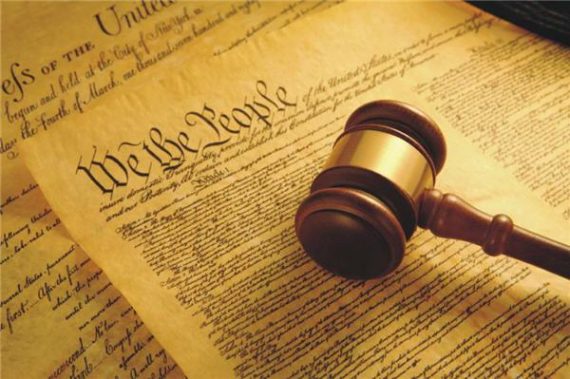Terrorist Plot, Or Entrapment?
Another FBI sting operation results in the arrest of a "terrorist," or did it create a crime where none existed before?
As James Joyner noted over the weekend, the FBI is crowing over the arrest of 19-year-old Mohamed Osman Mohamud, a Somali-American who thought he was engaging in a conspiracy to detonate a bomb during the lighting of the public Christmas Tree in Portland, Oregon. As it turns out, the entire operation was an FBI sting operation from beginning to end and, as Glenn Greenwald notes, that leads one to wonder if law enforcement operations of this type actually accomplish anything:
All of the information about this episode — all of it — comes exclusively from an FBI affidavit filed in connection with a Criminal Complaint against Mohamud. As shocking and upsetting as this may be to some, FBI claims are sometimes one-sided, unreliable and even untrue, especially when such claims — as here — are uncorroborated and unexamined. That’s why we have what we call “trials” before assuming guilt or even before believing that we know what happened: because the government doesn’t always tell the complete truth, because they often skew reality, because things often look much different once the accused is permitted to present his own facts and subject the government’s claims to scrutiny. The FBI affidavit — as well as whatever its agents are whispering into the ears of reporters — contains only those facts the FBI chose to include, but omits the ones it chose to exclude. And even the “facts” that are included are merely assertions at this point and thus may not be facts at all.
It may very well be that the FBI successfully and within legal limits arrested a dangerous criminal intent on carrying out a serious Terrorist plot that would have killed many innocent people, in which case they deserve praise. Court-approved surveillance and use of undercover agents to infiltrate terrorist plots are legitimate tactics when used in accordance with the law.
But it may also just as easily be the case that the FBI — as they’ve done many times in the past — found some very young, impressionable, disaffected, hapless, aimless, inept loner; created a plot it then persuaded/manipulated/entrapped him to join, essentially turning him into a Terrorist; and then patted itself on the back once it arrested him for having thwarted a “Terrorist plot” which, from start to finish, was entirely the FBI’s own concoction.
Greenwald’s first point is, of course, very well taken. “Innocent until proven guilty” is a concept that often seems to be lost in today’s media culture where the mere fact that someone has been charged with a crime is enough to convict them in the eyes of the media. Sometimes, it doesn’t even take an arrest but merely the suspicion that one might be involved in a high profile case. Just ask Richard Jewell or Gary Condit about that one. So, at the very least, Greenwald is right to caution all of us to not accept without question the allegations of an FBI affidavit as whollly true. There are at least two sides to every story, and Mohamud is entitled to his day in Court and to make the government prove its case beyond a reasonable doubt if he so chooses.
The broader point that Greenwald makes, though, is far more interesting. We’ve seen many of these types of cases in the years since the September 11th attacks. A wanna-be terrorist makes contact with what he believes to be an agent of al-Qaeda and then proceeds to engage in acts that would clearly constitute a criminal conspiracy to commit terrorism. Throughout the whole process, though, he’s actually under the control of the FBI or proceed to lead him down a road that causes him to incriminate himself in word and deed. Most of these cases end in an arrest long before any overt act takes place. Last month for example, a Virginia man was arrested for plots against the D.C. metro system at a point where all he had actually done in terms of overt acts was take a few photographs of Metro stations. In this case, though, the FBI let the case go to the point where they actually helped Mohamud construct a fake bomb and delivering it to the scene of the Christmas Tree lighting. For those like Greenwald who view these types of arrests as more a public relations stunt than actual law enforcement, the Oregon incident seems to be strong evidence in their favor. What better way for the FBI to look like the hero than by stopping a “terrorist plot” (that wasn’t really a terrorist plot) directed at America’s holiday celebrations? It’s a plot development straight out of 24, but what’s unclear is whether it actually accomplishes anything.
Greenwald goes on to note, at length, the three major problems with the Mohamud case based on the information we have available:
First, the FBI was monitoring the email communications of this American citizen on U.S. soil for months (at least) with what appears to be the flimsiest basis: namely, that he was in email communication with someone in Northwest Pakistan, “an area known to harbor terrorists” (para. 5 of the FBI Affidavit).
(…)
Second, in order not to be found to have entrapped someone into committing a crime, law enforcement agents want to be able to prove that, in the 1992 words of the Supreme Court, the accused was “was independently predisposed to commit the crime for which he was arrested.” …. But strangely, while all other conversations with Mohamud which the FBI summarizes were (according to the affidavit) recorded by numerous recording devices, this conversation — the crucial one for negating Mohamud’s entrapment defense — was not.
(…)
Third, there are ample facts that call into question whether Mohamud’s actions were driven by the FBI’s manipulation and pressure rather than his own predisposition to commit a crime.
(…)
Finally, there is, as usual, no discussion whatsoever in media accounts of motive.
The first three points go to the question of whether Mahmud was really a terrorist in waiting, or an angry guy who became a wanna-be terrorist thanks to an FBI sting operation that gave him access to materiel and support that he otherwise would not have had access to. It’s entirely possibly that, without this FBI operation, Mahmud would have been nothing more than an angry guy writing anti-American rants on a website somewhere. And that’s neither a crime, nor something the FBI should be concerning itself with.
As to that last point, the FBI affidavit notes that Mahmud said that he was motivated by what he perceived as U.S. policy in the Middle East, which is something nobody ever seems to talk about:
We hear the same exact thing over and over and over from accused Terrorists — that they are attempting to carry out plots in retaliation for past and ongoing American violence against Muslim civilians and to deter such future acts. Here we find one of the great mysteries in American political culture: that the U.S. Government dispatches its military all over the world — invading, occupying, and bombing multiple Muslim countries — torturing them, imprisoning them without charges, shooting them up at checkpoints, sending remote-controlled drones to explode their homes, imposing sanctions that starve hundreds of thousands of children to death — and Americans are then baffled when some Muslims — an amazingly small percentage — harbor anger and vengeance toward them and want to return the violence. And here we also find the greatest myth in American political discourse: that engaging in all of that military aggression somehow constitutes Staying Safe and combating Terrorism — rather than doing more than any single other cause to provoke, sustain and fuel Terrorism.
Perhaps, then, the way to combat terrorism is to look at what it might that motivates that small percentage of Muslims to act, rather than engaging in law enforcement tactics that look good on television but seem to accomplish very little in the overall scheme of things







I have a hard time buying the “we made them do it” argument. The acts which precipitated American military action could not, by definition, have been inspired by that same American military action.
So, what were we to do in response to the initial terrorist acts instead of bringing our military might to bear? Sit on our hands? Use spies to infiltrate and assassinate terrorist leadership? Talk to the terrorists to encourage them to see the error of their ways and turn to socially acceptable endeavors?
While logic dictates that our military action has inspired some folks to attack us through terrorism, it can’t have inspired the initial terrorism. I’d like to hear some rational discussion of what we could have done instead that would have had better results.
I’m not going to hold my breath waiting for Mr Greenwald to provide a useful response.
Don’t be simple. The US has propped up governments all over the world that are not even pretending to be democratic. When we support governments that are disliked by their own citizens, guess what? The dislike is transferred to the superpower doing the meddling.
Please, please, please don’t pretend foreign policy started on September 12th, 2001.
Consider: Egypt, Iran pre-revolution, Saudi Arabia, Israel (Israel is a separate issue but still gets US military support), etc.
What do you even mean by “initial terrorism”? How will military might conquer dislike of military interference?
And now we have someone trying to burn down the Muslim center where this guy worshiped…
Okay Richard, let’s take your list of “causes” as accurate, at least for the sake of argument. Let’s say they engendered terrorist attacks against the US. How should we have responded, then? Should we have said, essentially, “Oops, my bad. Sorry!” and just chalked up the lost lives to an error by our government? Or is there something else we should have done?
I’ll agree that there are no good answers here, but if we shouldn’t have acted as we did, then there must be another action we could have taken that would have been better. What was that action? Or actions?
Oh, and I don’t know if your initial comment was directed at me, Richard, but if you’re presuming I was only referring to terrorist actions starting on September 11, 2001, that’s an error on your part.
The cause of the attacks (whether justified or unjustified) is independent of the measures the FBI should take to stop the attacks. The question is whether the FBI is stopping people who would do an attack without their encouragement or not … and that’s not obvious in either direction.
Greenwald’s innocent until proven guilty attitude is a new one for him though, he’s been declaring Bush (and now Obama) guilty without a trial for quite awhile.
Scott atrans work on the motivations for terrorism is a good place to start.
The main problem with that is that it’s usually not a specific act by the US that motivates them to do what they did/wanted to do, in spite of what they say (and terrorists almost always try and say a specific event was the reason they did such-and-such in retaliation).
–
Rather, it’s a whole mentality of Islamic victimhood, that Islam is under attack by the US and must be defended, that drives these guys.
I read that the terrorist group had been infiltrated by two FBI agents and the terrorist plots were discussed while smoking marijuana.Muscle X edge
I read that the terrorist group had been infiltrated by two FBI agents and the terrorist plots were discussed while smoking marijuana.
I wonder if a person who contacts someone to kill their spouse who later turns out to be a police officer is also a victim of entrapment? And the answer is no. The person was intent on committing the crime.
There is no question that American foreign policy has many times sided with vicious psychotic depots because of the idea of my enemies enemy is my friend. This has lead to some Muslim countries to take a serious anti American stance (Think Iran). But we can not fix these grievous errors, unless we find a way of making H.G Wells dreams come true, so what do we do? There is no answer and if there were do you think it will be posted as a comment a website?
Cheers
In Chicago, a guy was given a fake bomb by the FBI and he planted it near Wrigley Field. The weirder thing is that he was motivated by anti-Daley hatred. He wanted to force Daley to resign. But he did this not long after Daley announced that he wouldn’t be running. Why would someone plant a bomb to hurt Daley politically when he’s going to be gone in a matter of months?
It seems very fishy to me. I couldn’t help but wonder if the FBI ratcheted up the pressure on the guy once they realized his motivation would be deflating quickly.